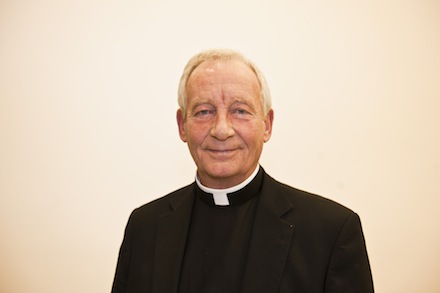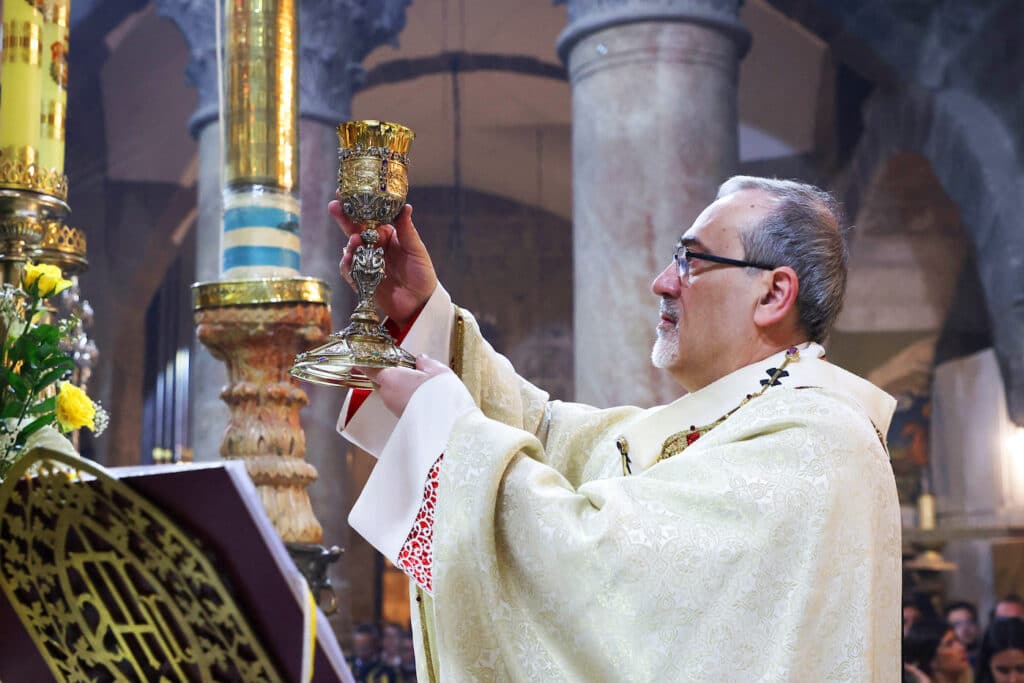
The Bishops’ Conference of England and Wales has said it opposes a proposal to automatically convert same-sex civil partnerships into marriages.
A submission to the Civil Partnership Review consultation, signed by Archbishop Peter Smith of Southwark, said: “Now that same-sex marriage exists in law, a new issue is being raised. There are those lesbian and gay Catholics who have entered into civil partnerships in order to secure important and necessary legal rights, but who do not wish either to become married in the eyes of the state, or to have their civil partnership automatically ‘converted’ into a marriage. To remove the legal right of these same-sex couples, who do not wish to ‘marry’, to enter into a civil partnership would mean removing legal rights for such people in future.
“We have received representations from some lesbian and gay Catholics stating that they would not wish to enter into a same-sex marriage, and who fear that their legal rights will be removed if civil partnerships are abolished.
“Some lesbian and gay Catholics do not wish to enter into civil same-sex marriage because of their deeply held belief that marriage is between a man and a woman only, but still wish to have the legal rights that are contained in a civil partnership. The removal of the option for same-sex couples to enter into civil partnerships could cause great harm to those Catholics and others.
The response continued: “In terms of the Equality Act framework, it is important that those who share the protected characteristics of sexuality and religion continue to be able to manifest their religious beliefs whilst not being denied the legal protections that are offered by a civil partnership.
“We are opposed to any automatic conversion of civil partnerships into same-sex marriages. The two realities were established differently in law with distinct meanings. Same-sex couples who entered into civil partnerships may not wish to have their relationship labelled in this way.”
Archbishop Peter Smith signed the response in his capacity as chairman of the bishops’ department for Christian responsibility and citizenship.
Here is the full text of the bishops’ response:
Introduction
1. In the wake of the passage of the Marriage (Same Sex Couples) Act 2013 Act the government is consulting on whether civil partnerships should be:
a. abolished and automatically converted into same sex marriages,
b. prevented from occurring in future whilst recognising existing civil partnerships,
c. extended to allow opposite sex couples to enter into civil partnerships, or
d. retained in their current state.
2. Now that same sex marriage exists in law, a new issue is being raised. There are those lesbian and gay Catholics who have entered into civil partnerships in order to secure important and necessary legal rights, but who do not wish either to become married in the eyes of the state, or to have their civil partnership automatically ‘converted’ into a marriage. To remove the legal right of these same sex couples, who do not wish to ‘marry’, to enter into a civil partnership would mean removing legal rights for such people in future.
3. We have received representations from some lesbian and gay Catholics stating that they would not wish to enter into a same sex marriage, and who fear that their legal rights will be removed if civil partnerships are abolished.
Q1: What are your views about abolishing the legal relationship of civil partnership once same sex couples can marry?
4. Some lesbian and gay Catholics do not wish to enter into civil same sex marriage because of their deeply held belief that marriage is between a man and a woman only, but still wish to have the legal rights that are contained in a civil partnership. The removal of the option for same sex couples to enter into civil partnerships could cause great harm to those Catholics and others.
5. In terms of the Equality Act framework, it is important that those who share the protected characteristics of sexuality and religion continue to be able to manifest their religious beliefs whilst not being denied the legal protections that are offered by a civil partnership.
6. We are opposed to any automatic conversion of civil partnerships into same sex marriages. The two realities were established differently in law with distinct meanings. Same sex couples who entered into civil partnerships may not wish to have their relationship labelled in this way.
Q2: Once marriage is available to same sex couples, do you think it should still be possible for couples to form a civil partnership as an alternative to marrying?
7. As explained above the continued legal right of lesbian and gay couples to enter into civil partnerships is important to them. Preventing new civil partnerships from being entered would deny them those rights and provide little or no benefit elsewhere.
“Other issues” within chapter 4 of consultation
Q8: Are there any proposals for changes to the legal terminology and processes for forming civil partnerships which are consistent with civil partnership being different from marriage?
8. There should be clear differences in the terminology and processes between civil partnership and marriage, recognizing the distinctive legal characteristics of each.
Archbishop Peter Smith
Chairman, Department for Christian Responsibility and Citizenship
17th April 2014
|
COMMENT POLICY The Catholic Herald comment guidelines •Do not make personal attacks on writers or fellow commenters – respond only to their arguments. |
||
![]()
This page is available to subscribers. Click here to sign in or get access.
Areas of Catholic Herald business are still recovering post-pandemic.
However, we are reaching out to the Catholic community and readership, that has been so loyal to the Catholic Herald. Please join us on our 135 year mission by supporting us.
We are raising £250,000 to safeguard the Herald as a world-leading voice in Catholic journalism and teaching.
We have been a bold and influential voice in the church since 1888, standing up for traditional Catholic culture and values. Please consider donating.



